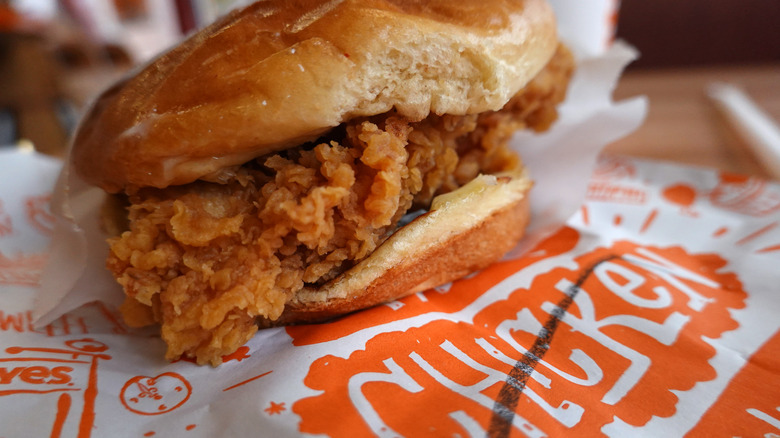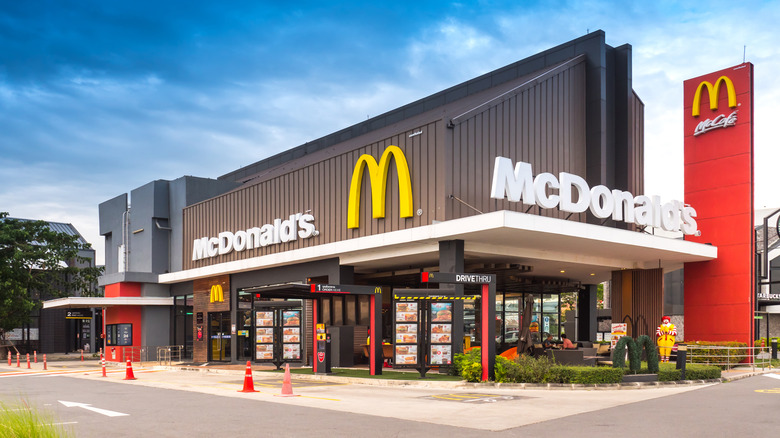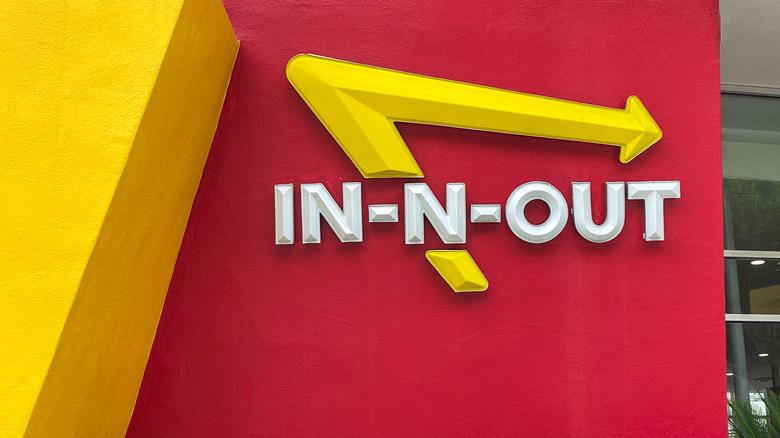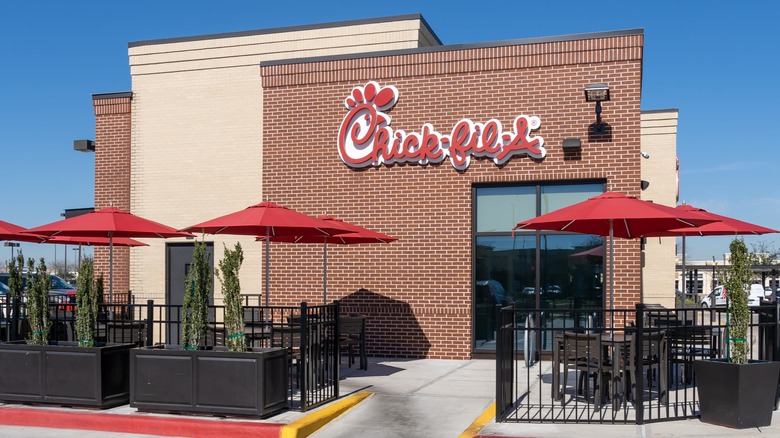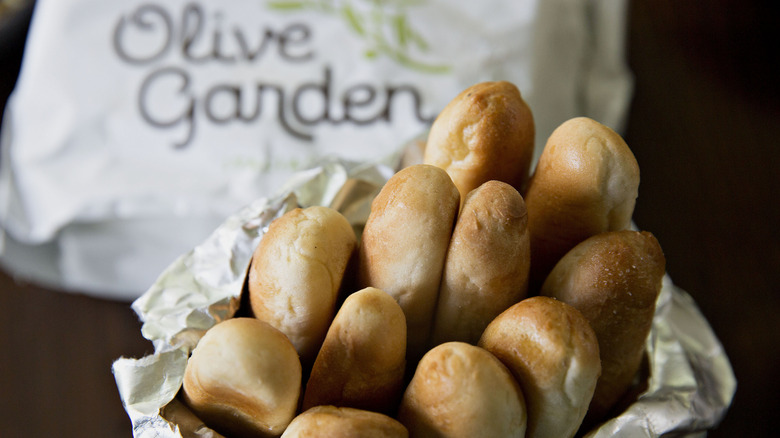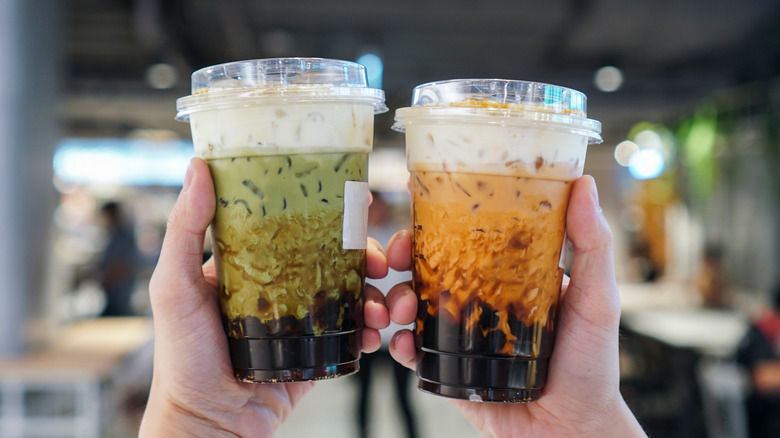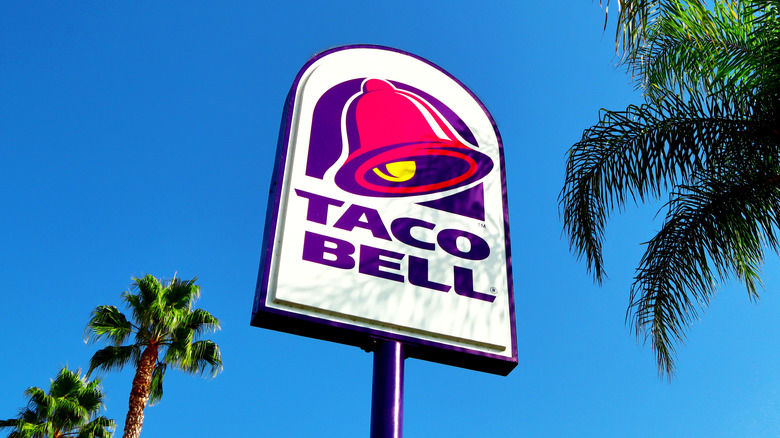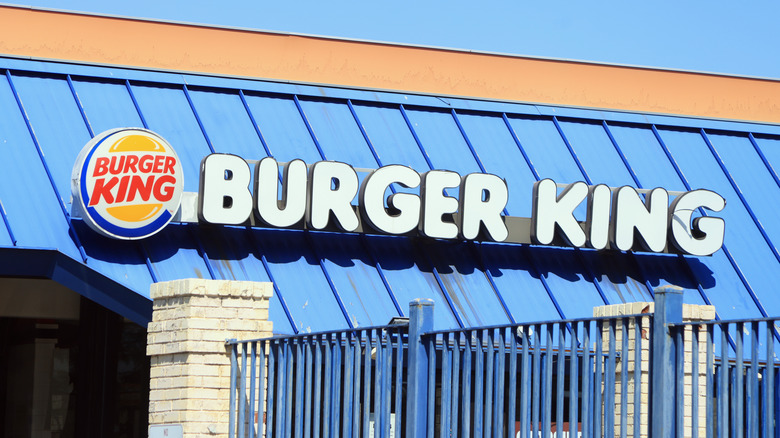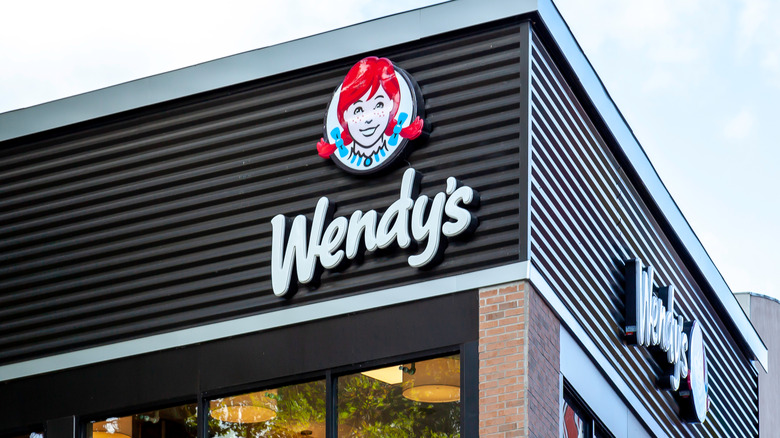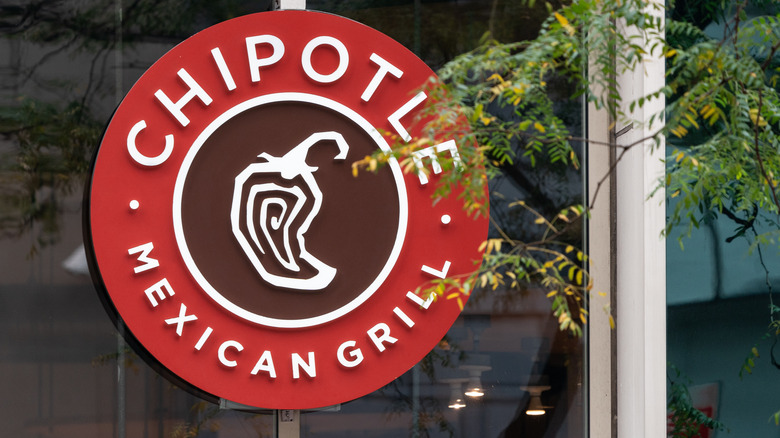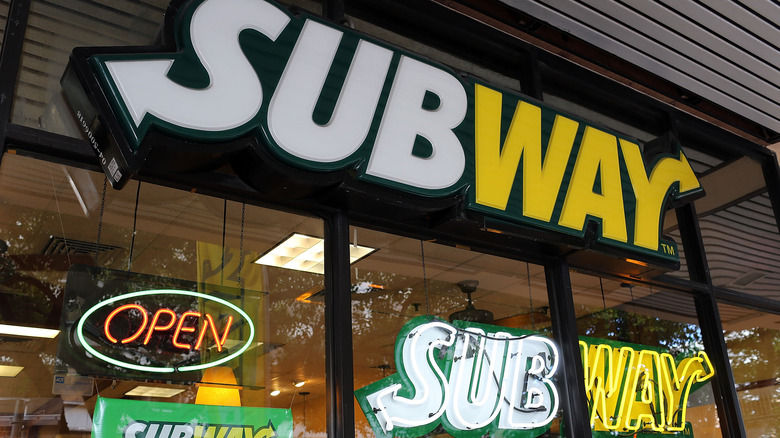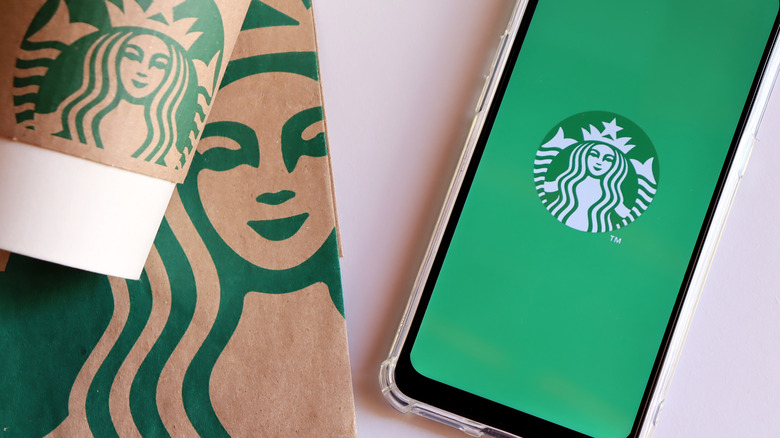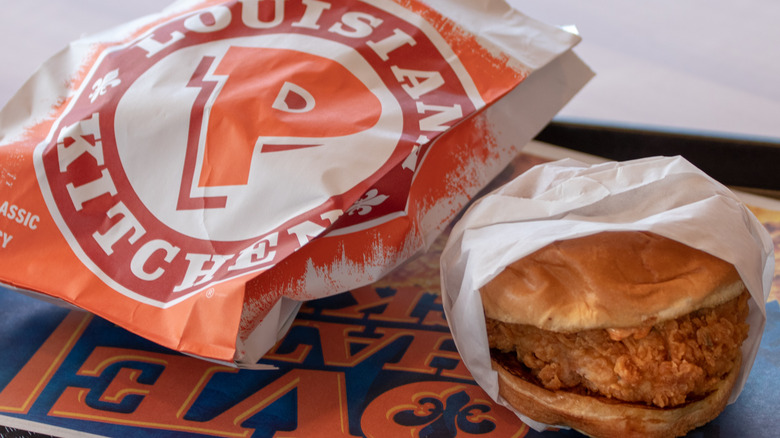13 Times Fast Food Chains Ran Out Of Popular Menu Items
There is nothing like pulling into the parking lot of your favorite fast food chain when you have been craving it all day. Now imagine the devastation of being told that your favorite meal is not only sold out, but the employees are unsure when it will be available again. Fast food chains can run out of popular menu items for many different reasons. Sometimes, the launch of a new menu item is just too popular, so the store sells out. Occasionally, management might create incorrect sales forecasts, leading to them under-ordering supplies. But sometimes, due to natural disasters, civil unrest, or a lack of labor, the ingredients for our favorite foods just can't get where they are going.
Since the start of the COVID-19 pandemic, consumers worldwide are getting more used to the affects of supply chain shortages on every aspect of their lives. These are just a few of the wild reasons customers couldn't order their favorite things.
1. McDonald's ran out of milkshakes
The McDonald's ice cream machine is the stuff of legends. When you enter the drive-thru, you can never really be sure if you are going to hear those dreaded words or not. "Sorry, the ice cream machine isn't working right now." Usually, when this happens, it doesn't last long. You can try again at the same location within a day or so and everything is back up and running again. However, things took a dark turn for McDonald's fans in the United Kingdom in 2021.
According to The Guardian, a perfect storm of problems hit the fast food chain causing a widespread shortage of milkshakes. While a broken machine is usually the reason customers can't get an ice cream treat, in this instance, it was due to a lack of supplies. The newspaper reported that there were not enough truck drivers to move goods around the country due to recent immigration changes as a result of the kingdom's vote to leave the European Union. On top of that, Covid-19 cases were surging. This meant many workers from all levels of the supply chain were out sick. In the meantime, customers wanting some dessert from McDonald's had to satisfy themselves with other options, like an apple pie or chocolate chip cookie.
2. In-N-Out sells out fast
In-N-Out is a burger chain made famous in sunny California. It has slowly been expanding across the United States, introducing its famous "animal-style fries" to a larger number of American diners. However, when the chain decided to try out a few international locations, its reputation and the hype around the In-N-Out menu caused some real chaos.
According to Eater, In-N-Out opened a pop-up location in Singapore in 2012 to test the market there. The restaurant had an ultra-exclusive menu with only 300 burgers ready to sell. Fans of the brand, perhaps those that had tried it on travels to America, began lining up well before its opening to secure a taste. Of course, more than 300 people showed up to the event, so it sold out within 5 minutes of opening. This caused chaos as there were plenty of hungry and disappointed fans who walked away with nothing. The chain didn't learn its lesson, as similar pop-up locations opened in 2014 and 2019 also only had 300 burgers available and also sold out within minutes, per Today.
3. Chick-Fil-A ran out of sauce
Chick-Fil-A nuggets are a great blend of flavor. The breaded nuggets are fried up in peanut oil, giving them a special zing. However, while you can enjoy a 12-pack of nuggets on their own, or with a little bit of ketchup, most fans of the fried chicken chain prefer to spice things up by dunking their chicken in a special sauce. The brand is well-known for its many dipping sauces available to fans, like Chick-Fil-A sauce, which tastes a bit like a hickory-smoked mayonnaise. Others might reach for a Polynesian sauce, which is the perfect mix of sweet and sour, or the classic spicy buffalo sauce.
Typically, you can take as many of these sauces home with you as you would like without being charged. So you can imagine the horror customers faced when they placed their orders and were told they could only have one sauce per meal. According to CNN, a 2021 supply shortage hit the chain hard. To avoid running out completely, Chick-Fil-A had to ration its sauces. Luckily for fans, things have since returned to normal.
4. Whataburger couldn't serve breakfast without eggs
Eggs are a staple ingredient in most breakfast foods: scrambled eggs, sausage, egg biscuits, and even breakfast tacos all require eggs. So when a restaurant runs out of them, the breakfast service essentially grinds to a halt. This is what happened to Texas-based fast food chain Whataburger in 2015. According to the El Paso Times, the chain used to sell breakfast items every day from 11 p.m. to 11 a.m. However, eggs were in such short supply across the nation that management decided to drastically cut the hours. The idea was that by only serving breakfast for four hours a day during the week and six hours on the weekends, more customers could get their orders fulfilled.
This particular egg shortage was caused by a 2015 outbreak of bird flu in the United States. Many poultry farmers in the country's Midwest lost birds, as nearly 44 million of them died due to the sickness. This caused a ripple effect. The many industries that relied on chicken and eggs to do business suddenly were in the lurch. Luckily, the shortage was over sooner than expected due to a temporary allowance of eggs imported from other countries, like the Netherlands.
5. Olive Garden ran out of breadsticks
When most tourists are in New York, they love indulging in the local food scene and trying one-of-a-kind restaurants. However, sometimes when you are traveling, you just want to experience the comfort of a little slice of home. This is where the Olive Garden in Times Square shines. According to Time magazine, a former manager of the location spilled inside details about what it was like to work in such a busy place.
The manager shared that there was one horrendous shift when the kitchen could simply not keep up with the number of diners in the restaurant. As any true fan of Olive Garden knows, each table gets unlimited salad and breadsticks along with its meal. So if each table is continuously occupied and the guests are chowing down, the number of breadsticks needed to keep things running smoothly could easily be in the thousands. Yet on this fateful day, the location ran out of breadsticks entirely. The reaction from the guests was so intense that the manager confirmed it was one of the worst shifts they ever had. So bad, that a few weeks later when two guests got into a fistfight that escalated into trying to stab each other with the knives on the table, the manager still thought running out of breadsticks was worse.
6. Boba Guys ran low on boba
The main reason you go to a bubble tea shop is to get a sweet treat with tapioca pearls. So imagine putting in your order for a pearl milk tea at your local place and being told they are out of boba. This can happen on occasion. Sometimes, the store is simply cooking a new batch and it will be ready in about 15 minutes; other times, it's near closing time and you'll just have to go back the next day. However, the popular bubble tea chain Boba Guys experienced a pearl shortage that was much more severe.
According to an Instagram post by the company in June 2022, 99% of the boba served around the world is produced in Taiwan — the drink's country of origin. Due to ongoing supply chain issues, Boba Guys, as well as many other bubble tea chains, were experiencing severe difficulty sourcing the materials to serve the popular drinks. The chain also ran low on cups, lids, and even the larger straws needed to enjoy tapioca effectively. To save time and supply, the store began cooking what it did have upon opening the store and not before. Now, you still cannot order a drink with pearls until at least 30 minutes after opening, per Boba Guys.
7. Taco Bell was short on ... everything
Imagine the frustration of pulling into the Taco Bell drive-thru and ordering a burrito. "Sorry, we are out of beans," the cashier tells you. You are disappointed, but change your order to a soft taco meal instead. "Sorry, we don't have any soft tortillas, either," comes the voice from behind the screen. This was the reality for many hungry Taco Bell fans in 2021. According to Today, the Mexican fast food chain was hit hard by multiple supply chain shortages over the summer. However, one thing that was different about this food shortage than others is that Taco Bell would not confirm which food items were in short supply.
This led fans of the brand to assume that it was short on every single ingredient on the menu. "Sorry if we can't feed your current craving. Due to national ingredient shortages and delivery delays, we may be out of some items," read a message from the Taco Bell press team. One fan tweeted that at their specific location, the issue was the lack of mild sauce. Another mourned the lack of chicken chalupas at their location. So, it really does sound like the brand was short on everything.
8. Burger King delayed a sandwich launch due to a pickle jar shortage
Pickles can be a polarizing topping for a burger, but Burger King once had to push back launching a new sandwich because there simply weren't enough of them. According to Michigan Live, the new hand-breaded sandwich couldn't be served in the Midwest because of an issue with Kaiser pickles, the local pickle supplier. "It's such a good sandwich," manager Jim MacDonald told the outlet. "Once our customers bite into the crispy and juicy sandwich with the special sauce, we're sure they're going to relish it."
Kaiser pickles is a family-owned company in Cincinnati, Ohio. During the lockdowns of 2020 and 2021, demand for jars surged in the area. Unfortunately, the small factory didn't have the scale to keep up with the new demand, so Burger King's needs were put on the back burner. Kaiser needed to wait for more jars to come in, so the workers could package the pickles and deliver them to local Burger Kings. To keep the rollout of the new sandwich somewhat on track, Burger King took a rolling approach. If you had pickles, you could serve it, but other stores had to wait days, sometimes weeks to take part in the debut, per Wood TV.
9. Wendy's couldn't sell any burgers
In 2020, hundreds of Wendy's restaurants across the United States had to stop selling one of their most popular items: burgers. According to The New York Times, the fast food chain didn't have enough beef to sell to customers because of problems with meat-packing plants up the supply chain. Wendy's normally ordered its meat from certain producers. However, due to high COVID case numbers and local public health measures, the plants shut down.
On one particular day in May 2020, over a third of Wendy's locations could only sell chicken nuggets and sandwiches, as they were completely out of beef. While there was plenty of frozen beef available, Wendy's insisted its restaurants only use fresh beef. This caused the shortage, per The New York Times. Users on social media thought Wendy's being out of beef was particularly ironic, due to the chain's popular 1980s advertising campaign, "Where's the beef?" The famous commercial featured an older lady examining burgers from other burger restaurants and commenting that Wendy's beef patty had far better portions.
10. Chipotle had a shortage of carnitas
Chipotle experienced multiple food shortages well before the supply chain issues brought on by the 2020 pandemic. According to BuzzFeed News, the fast-casual Mexican chain ran out of the popular menu item carnitas as early as 2015. At least a third of locations across the United States were totally out of the beloved protein, while other locations struggled with short supply. Fans were obviously in an uproar, lamenting that the meat made up a large portion of their daily diet, so the world was ending, per the outlet. In this instance, the shortage came from the very specific kind of farms Chipotle uses to source its pork, in accordance with its Responsibly Raised program.
Unfortunately, it wasn't the last time the fast food giant ran into the issue. People reported that in 2020, Chipotle was once again experiencing a mass shortage of carnitas. And, once again, fans of the filling were in a tailspin. However, the reason behind the problem was different this time. While the pork was available, it wasn't up to the buyer's standard. Chipotle will only purchase pork from "farmers whose pigs are raised outside or in deeply bedded pens, are never given antibiotics, and are fed a vegetarian diet," Chris Arnold, a Chipotle spokesman, told People. During an inspection of the supplier's farms, problems in standards were identified, thus the shortage.
11. Subway ran low on available meat
It's hard to have a real sandwich without some sort of protein, especially from Subway. The fast food chain gained popularity throughout the early 2000s as a healthy alternative to the burger and fries options out there. However, the impact of avian flu began to undercut the restaurant's bottom line when it ran out of meat. According to Restaurant Business Online, the retailer had to stop selling its popular turkey sandwich when the disease took out most of its supply. This hurt business as the 6-inch turkey sandwich is the most popular at the chain.
Things got worse when supplies of roast beef and ham also started dwindling. Location managers began to panic as you can't sell sandwiches without anything to make the sandwich with. To add insult to injury, some managers reported that leadership told them to just go out and purchase meat at grocery stores, like Costco instead of at the wholesale price, per Restaurant Business Online. This would make things much more expensive for everyone. "The supply chain challenges that continue to impact the entire industry, as well as ongoing inflation, has led to protein price increases," a Subway spokesperson told the outlet in 2022. "We are working with our franchisees to guide managing incremental costs, which includes balancing the value proposition for our guests while ensuring franchisee profitability."
12. Starbucks couldn't keep up with oat milk orders
If you are sensitive to dairy or just prefer the taste of plant-based milk in your morning coffee, Starbucks has typically been the perfect place go to. However, the retailer was hit with such an uptick in orders for oat milk that it simply could not keep up. According to Bloomberg, Starbucks uses Oatly brand milk. The manufacturer noticed a sudden increase in demand during the early days of the pandemic. As a result, the company decided to build a new manufacturing plant to keep up. However, due to employees becoming ill, local public health measures, and delays in construction parts, the construction of the factory was very behind schedule.
This delay in building coincided with Starbucks launching two new fan-favorite drinks: the Honey Oatmilk Latte and the Brown Sugar Oatmilk Iced Shaken Espresso. Both drinks relied heavily on oat milk for their signature taste, per Today. When asked about the shortage, a representative apologized but reminded customers that the chain has plenty of other non-dairy options to choose from, like almond, coconut, and soy milk.
13. Popeyes ran out of Chicken Sandwiches
Popeyes is famous for its crispy, Louisiana-inspired fried chicken. For years, fans flocked to the restaurant to enjoy tenders and other chicken pieces. However, after a famous spat with Chick-Fil-A over who really had the best fried chicken out there, Popeyes started selling sandwiches, too. The hype around the launch of the Popeyes chicken sandwich continued to grow in the days leading up to its launch, per Business Insider. It was said to have juicer chicken, crunchier breading, and a cheaper price tag than that of Chick-Fil-A.
Fans of the chain couldn't wait to get their hands on one. Yet due to the controversy in the days leading up to its debut, people who have never eaten at Popeyes before wanted to try one, too. Everyone likes being part of something big and couldn't wait to let their opinion on the sandwich be known. This includes CBS Morning anchor Gayle King who had to check with 15 locations before getting her hands on one. The demand was so high that locations across the country were not just out of the sandwich for days, but rather weeks.
